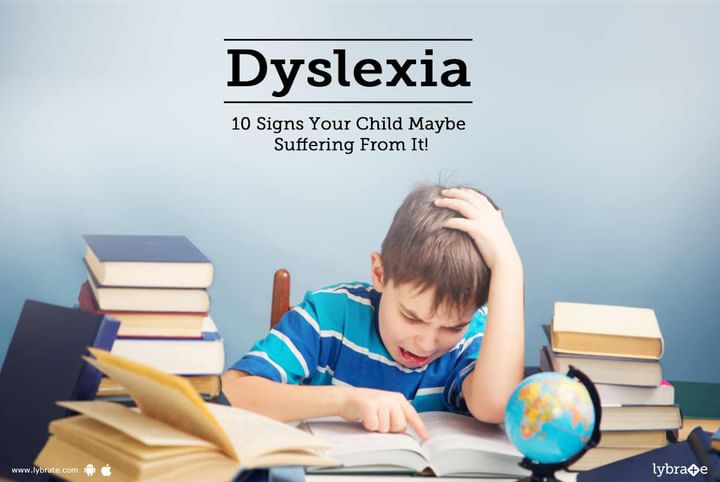Dyslexia - 10 Signs Your Child Maybe Suffering From It!
All parents expect their child to start going to school, learn writing and learning and do well in academics. However, children with dyslexia may not be able to progress at school at the same pace as others. The good news is that there are early pointers that can help a parent to identify dyslexia in the early stages. This can be helpful in training and support the child socially to learn and socialise normally. Dyslexia is a disability that affects both spoken and written language. They have a different learning style and when supported and encouraged, instead of mocked and insulted, they can become avid readers. The following are common 10 indicators of developing dyslexia in children, in general, and at school.
10 Behavioural signs to watch for in general:
- The child usually has difficulty concentrating and following instructions
- The child is easily distracted, seems to daydream, and tends to forget words.
- Poor personal organisation skills and is not very good at time keeping.
- May get confused between today, tomorrow, yesterday; east and west; right and left; up and down.
- Has difficulty remembering seasons, months and days.
- Tends to be doing something to avoid work.
- Seems distracted, and ‘daydream,’ does not seem to listen
- Requires a lot of effort focusing on things at hand and is constantly tired.
- Slow pace of processing in terms of spoken or written language
- Often appears withdrawn or lost in his own world.
10 Behaviours to watch for at school:
- Poor standard of writing and written work in comparison with oratory skills.
- Poor handwriting with badly formed letters.
- Confused easily between similar looking letters like m/w, n/u, b/d.
- Usually, messes up work by using close but wrong spellings and rewriting the same
- Mixes up words by using similar-looking words – quiet and quite, tired and tried.
- Same word is spelt differently at different times
- Poor motor skills and pencil grip leading to slow, inaccurate writing
- Produces a lot of phonetic spelling which does not change with repeated corrections
- There is difficulty in blending words together, and struggles a lot when asked to read out loud, can miss out or add words that are familiar in between
- Has difficulty connecting the story that is being written or read
As noted, these children have very inconsistent behaviour with very limited understanding of nonverbal communication. If these symptoms go on increasing as they grow, it is advisable to seek professional help so that support can be provided and the condition can be arrested at the early stages. If you wish to discuss about any specific problem, you can consult a Psychiatrist.



+1.svg)
